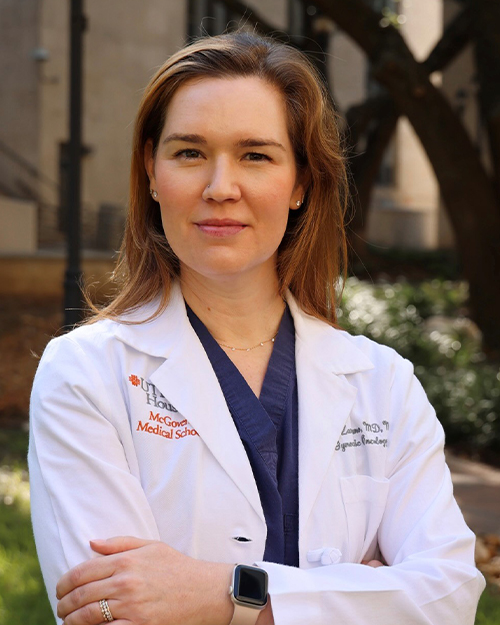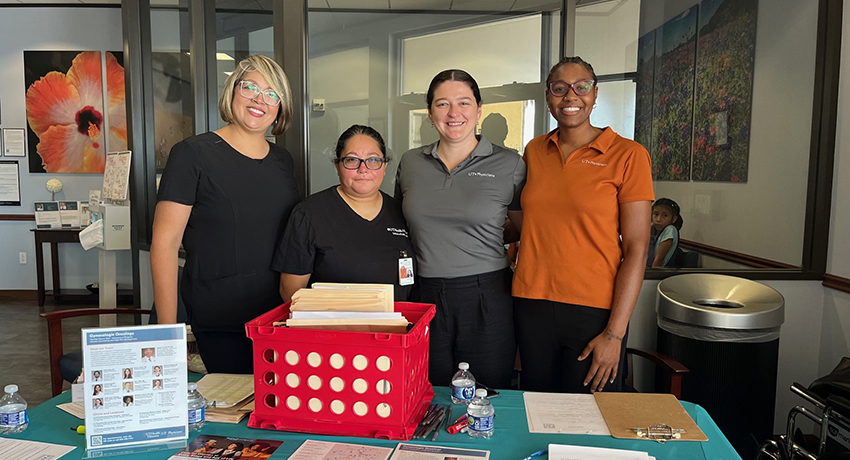The incidence of late-stage cervical cancer among Hispanic women in Harris County is one of the highest in the state despite a 74% screening rate. Lack of follow-up after abnormal screening results is a factor.
A new $1.5 million grant will enable UTHealth Houston to improve cervical cancer screening follow-ups and early treatment for this vulnerable population. Awarded by the Cancer Prevention and Research Institute of Texas (CPRIT), this significant funding can help bridge the gap in health care access, ensuring that more women receive the critical follow-up care they need after screenings.

“Screening for cancer is only as good as the subsequent management,” said Abigail S. Zamorano, MD, principal investigator of the grant, a gynecologic oncologist with UT Physicians, and an assistant professor at McGovern Medical School at UTHealth Houston. “If you screen everyone, that’s great. But unless you do something with the abnormal results, you may as well have not screened.”
Impacting the community
Since 2018, the Houston PAP Project has provided cervical cancer screening, diagnosis, and treatment of precancer/dysplasia through colposcopy and LEEP (loop electrosurgical excisional procedure). Zamorano has spearheaded this initiative and is one of several physicians who offer services as a Saturday clinic volunteer.
This new, three-year, grant-funded project will enable the expansion of services and geography. Zamorano said they plan to be a center of referral for underserved patients who otherwise would not have access to care management beyond cervical cancer screening. This grant will make it possible to expand these services to other clinics in medically underserved areas around Harris County.
“We want to be a destination for patients with abnormal cervical cancer screenings,” Zamorano said.
Adding peer health advocates
Another aspect of project expansion is using peer advocates to assist with patient education and counseling. Advocates will use their personal experiences to help guide, counsel, and reassure patients, just as Juana Espino has been successfully doing as a cervical cancer survivor and clinic coordinator with the Houston PAP Project. Espino is the heart of the program, working tirelessly to find and educate women about the importance of cervical cancer screening, said Yen-Chi Le, PhD, co-investigator of the grant.
“Juana goes to community centers, grocery stores, libraries, and churches to meet the women who are busy with daily life and may not be prioritizing their health,” said Le, UTHealth Houston executive director of innovation and quality, Healthcare Transformation Initiatives.
This is the first CPRIT grant received by the Department of Obstetrics, Gynecology and Reproductive Sciences and the Division of Gynecologic Oncology. Zamorano is honored that CPRIT recognized that this intervention is needed for those medically underserved.
“I’m excited about developing the use of peer advocates and a model that other organizations could use around the state or country,” Zamorano said. “I feel empowered by this and can’t wait. It’s very validating.”


